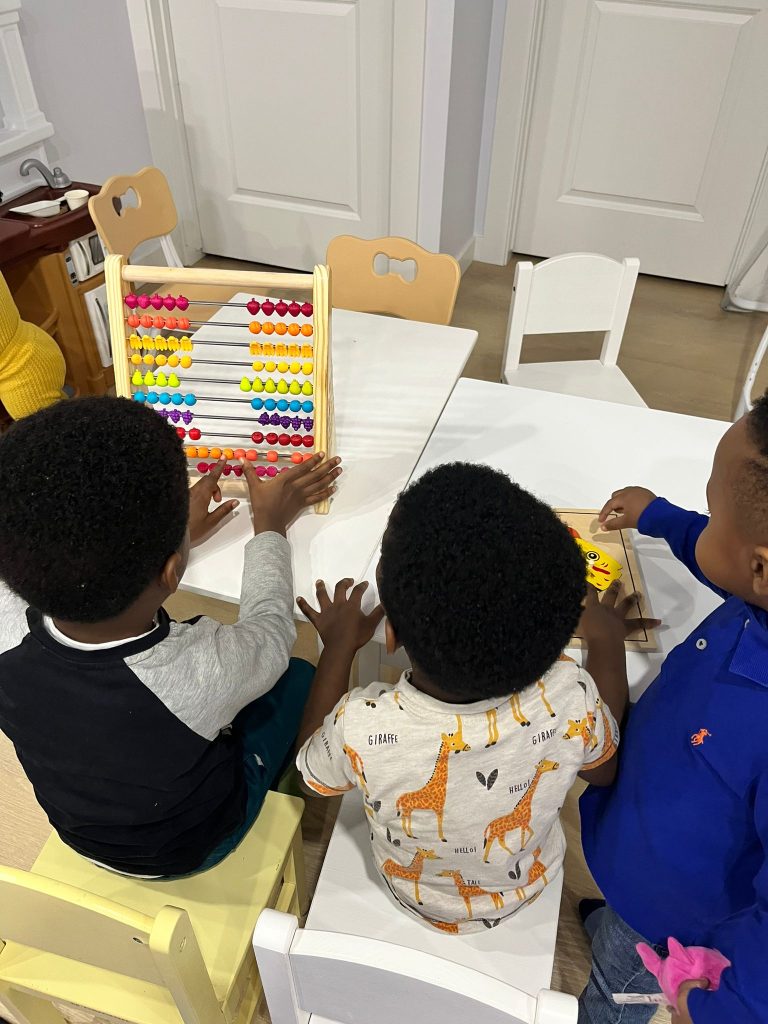Mastering mathematical concepts is an educational strategy aimed at building a strong foundation in mathematics education for students of all grades. The goal of this content is to progressively introduce fundamental concepts in child early grades and advance to more complex topics in higher grades, focusing on understanding core principles, developing problem-solving skills, and applying mathematical reasoning.
By fostering a deep comprehension and confidence in mathematics, understanding the steps in math concepts prepares students for higher education and real-world applications. Thus, this content is aimed at enlightening you on some of the easy steps/approaches used to achieve this for students of grades 1-4.
There are at least 10 steps students can progressively build their mathematical skills and confidence, paving the way for mastering mathematical concepts. Some of the steps include building a strong foundation, practicing regularly, relating math to real life, using visual aids, encouraging problem-solving, utilizing technology, fostering a growth mindset, differentiated instruction, regular assessment, and parental involvement.
In this first series of this blog, we will further explain the first step of mastering mathematical concepts (Building a Strong Foundation) as it relates to students of grades 1-4.
Understand Math concept and conquer numbers!

Table of Contents
ToggleBUILDING A STRONG FOUNDATION
Mastering mathematical concepts in grades 1-4 is crucial for developing a solid foundation that supports future child education. The first step in this process, “Building a Strong Foundation”. This involves several key elements that ensure young learners acquire the necessary skills and understanding. Here’s an exhaustive explanation of this first step:
- Understanding Number Sense: Number sense is the ability to understand, relate, and connect numbers. It includes:
Counting and Cardinality: Recognizing numbers, counting objects, and understanding the relationship between numbers and quantities.
Comparing Numbers: Identifying which numbers are greater or lesser and ordering numbers.
Place Value: Understanding that the position of a digit in a number determines its value (e.g., units, tens, hundreds). - Developing Basic Arithmetic Skills: Arithmetic is the foundation of all higher-level mathematics. This includes:
Addition and Subtraction: Learning addition and subtraction facts, understanding concepts of ‘more’ and ‘less,’ and using various strategies (e.g., counting on fingers, using number lines).
Multiplication and Division: Introducing multiplication and division with understanding repeated addition, grouping, and learning multiplication tables. - Learning Through Manipulatives and Visuals: Using physical objects and visual aids helps students grasp abstract concepts. This includes:
Manipulatives: Tools like blocks, counters, beads, and abacuses to physically manipulate numbers and understand operations.
Visual Representations: Drawings, diagrams, number lines, and charts to visualize mathematical concepts. - Encouraging Problem-Solving Skills: Encouraging students to approach problems methodically builds critical thinking and resilience. This includes:
Word Problems: Translating real-world situations into mathematical expressions and solving them.
Logical Reasoning: Understanding patterns, sequences, and relationships between numbers. - Understanding Mathematical Language: Grasping the vocabulary and symbols of mathematics is essential for communication and problem-solving. This includes:
Math Vocabulary: Terms like sum, difference, product, quotient, greater than, less than, etc.
Symbols: Recognizing and using mathematical symbols (+, -, ×, ÷, =).

Math education: Strong foundation at early age is key
6. Building Confidence and Positive Attitude: A positive attitude towards math and confidence in one’s ability to solve problems are crucial. This includes:
Encouragement and Praise: Providing positive reinforcement and celebrating successes.
Growth Mindset: Encouraging the belief that ability in mathematics can improve with practice and effort.
7. Engaging in Math Talk and Discussion: Discussing mathematical ideas helps solidify understanding and promotes deeper learning. This includes:
Math Conversations: Encouraging students to explain their thinking, ask questions, and discuss strategies.
Collaborative Learning: Group activities and peer discussions to share different approaches and solutions.
8. Practice and Repetition: Regular practice is essential for mastering mathematical concepts. This includes:
Daily Math Activities: Short, frequent practice sessions to reinforce skills.
Varied Practice: Using different types of problems and contexts to apply learned skills.
9. Assessment and Feedback: Ongoing assessment and feedback help identify areas of strength and areas needing improvement. This includes:
Formative Assessment: Observations, quizzes, and informal checks for understanding.
Summative Assessment: Tests and assignments to evaluate overall learning.
10. Integration with Real-Life Contexts: Connecting math to real-life situations makes learning relevant and engaging. This includes:
Practical Applications: Activities like shopping, cooking, and measuring to apply math skills in everyday contexts.
Story Problems: Using stories and scenarios that require mathematical thinking to solve.
CONCLUSION
In math education, the act of regular practice and repetition helps solidify understanding, while integrating mathematics into daily routines makes mastering mathematical concepts relevant and engaging. Encouraging a positive attitude towards math and providing a supportive learning environment are also crucial for building confidence and competence. By focusing on these elements, educators can help students build a strong mathematical foundation in grades 1-4, setting the stage for future success in more complex mathematical concepts.
Ingenious Learners Academy believes in encouraging kids to overcome challenges and succeed. We support kids and help them achieve their greatest potential in. Take the first step towards your child’s math education by enrolling them in Montessori Childcare Academy! https://www.ingeniouslearners.com. You can interact more with us via our social media handle:  https://facebook.com/61557867722280
https://facebook.com/61557867722280
Helpful Source
Here are some helpful outbound links for mastering mathematical concepts:
- Khan Academy: Offers a comprehensive set of lessons and exercises for early math, including addition, subtraction, place value, and more. https://www.khanacademy.org/math/cc-early-math
- Math Playground: Provides a variety of interactive math games and activities to make learning math fun and engaging. https://www.mathplayground.com/grade_1_games.html
- Cool Math 4 Kids: Offers interactive games, lessons, and practice problems to help kids understand math concepts. https://www.coolmath4kids.com/
- SplashLearn: Provides personalized learning experiences in math through interactive activities and games. SplashLearn: Fun Math & ELA Program for PreK-Grade 5
- Prodigy Math Game: Combines educational content with a fantasy-based game to keep kids engaged while learning math. Prodigy Math
- PBS Kids Math: Features math games and activities that are tied to popular PBS Kids shows. https://pbskids.org/games/math/
- ABCya!: Offers a range of educational games for grades K-5, focusing on various math skills. https://www.abcya.com/grades/1/numbers
- Education.com: Provides worksheets, games, and activities for grades 1-4 to help reinforce math concepts. https://www.education.com/resources/mathematics/
- Hooda Math: Includes fun and interactive math games that are designed to teach various math concepts. http://www.hoodamath.com



